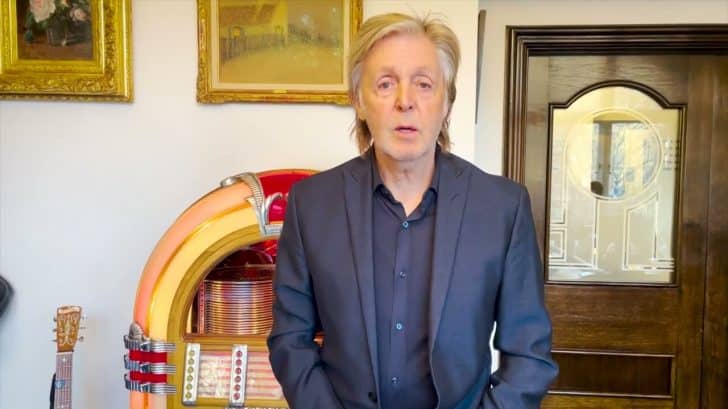The Beatles, one of the most iconic bands in history, had their fair share of incredible performances and unforgettable moments. However, not every concert was a magical experience for the Fab Four. In a recent interview, Paul McCartney opened up about what he considers to be the worst gig The Beatles ever had, shedding light on the challenges they faced during their final tour in 1966.
By the time the band embarked on their 1966 tour of the United States, the constant pressures of touring had taken a toll on the group. Paul McCartney, however, remained a strong advocate for touring, believing it was crucial for their growth as musicians. Yet, after a particularly miserable show in St. Louis, even McCartney had to admit that they had reached their limit. It was during this performance that he realized the band needed to bring their live performances to an end.
Rainy Misery in St. Louis
The ill-fated concert took place in St. Louis, where rainy weather threatened to dampen their spirits. Open-air concerts in the United States were notorious for their unpredictable weather conditions, causing anxiety for the band’s road manager, Mal Evans. In his account in The Beatles Anthology, Evans described his fear of rain on the stage’s electrical equipment, which could potentially harm the band and incite a dangerous stampede if the show were to be abruptly halted.
Despite the inclement weather, The Beatles went ahead with the St. Louis concert. However, it was far from the uplifting experience they had hoped for. McCartney reminisced about the gig, stating,
“[I]t rained quite heavily, and they put bits of corrugated iron over the stage, so it felt like the worst little gig we’d ever played at even before we’d started as a band. We were having to worry about the rain getting in the amps, and this took us back to the Cavern days — it was worse than those early days. And I don’t think the house was full.”
The conditions on stage were far from ideal, with sparks flying due to the dampness. Yet, it was the post-show experience that truly solidified the band’s decision to end their touring days. As they made their way out of the venue, they found themselves crammed into an empty steel-lined removal van. With nothing to hold onto, sliding around as the vehicle moved, the band members reached their breaking point.
McCartney vividly recalled the moment, saying:
“At that moment, everyone said, ‘Oh, this bloody touring lark – I’ve had it up to here, man.’ I finally agreed.”
Chaotic Incidents and Safety Concerns
However, the St. Louis concert wasn’t the only miserable experience during their final tour. The Beatles encountered other challenges that tested their resilience and safety. Ringo Starr received death threats before one show, leaving him terrified that someone might harm him during the performance. At another concert, a fan threw a firecracker onto the stage, leading the band to believe that an assassination attempt had been made. The accumulation of these chaotic incidents only strengthened their desire for a break.
The Breaking Point and Unanimous Decision
Following the St. Louis show, The Beatles made the unanimous decision to play their final concert at Candlestick Park in San Francisco. Paul McCartney requested their press officer, Tony Barrow, to record the concert, and they took photographs of themselves afterward, signifying the end of an era.
George Harrison shared their collective sentiment, stating:
“We knew: ‘This is it – we’re not going to do this again. This is the last concert.’ It was a unanimous decision.”
The Beatles’ journey as a live performing band came to a close that day in San Francisco, marking the end of an era and the beginning of a new chapter for each member. Their decision to stop touring allowed them to focus on studio work and embark on individual artistic ventures. While the St. Louis concert stands out as their worst gig, it serves as a testament to the band’s resilience and the immense pressure they faced throughout their career.

